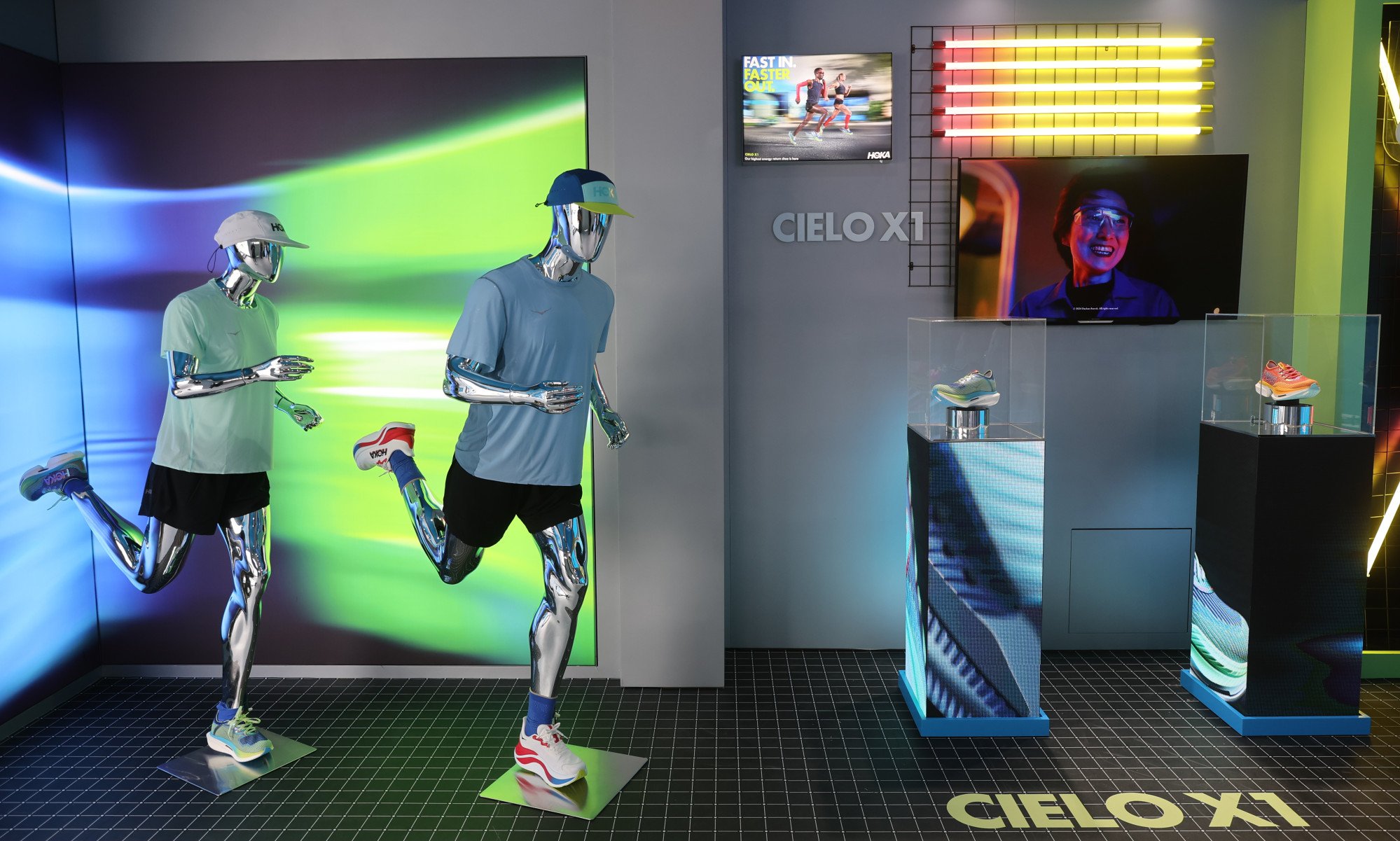Fitness
Hoka to open two stores in Hong Kong as running shoe brand eyes growth in Asia

Caroti was in Hong Kong to meet with Hoka’s partners in Asia and to open its FlyLab installation at K11 Musea on the Tsim Sha Tsui promenade, where shoppers can try out shoes and experience its sole-fitting technology that gives shoe-fitting recommendations.
Hoka has more than 120 points of sale in Hong Kong, where it is available in retail outlets that carry other fitness and sporting brands. The group also has online sales channels.
The expansion in Hong Kong and other Asian cities is riding on the estimated 10 per cent growth in the sportswear market in the region between 2023 and 2027, compared with 7 per cent global growth, Caroti said.
Hoka’s largest markets currently are North America and Europe.
“The health and fitness sector is growing at a faster rate and the market will be over half a trillion dollars within the next three years,” he said. “Asia is the fastest growing region globally. So we want to be a part of this … There will be more investment coming to this part of the world.”
Caroti said Hoka’s shoes are among the top three in Asia, and the top five most preferred among runners in key marathons and races in the region. He noted that Hong Kong attracts not only tourists from mainland China but also visitors from Southeast Asia. The brand has recently opened new stores in Singapore and the Philippines
Hoka’s push for its own brand-store strategy does not mean abandoning the multibrand shops, as this gives consumers the opportunity to compare its products with other brands, Caroti added.
The strategy of whether to focus on multibrand or own brand shops is highly dependent on the “developmental stage of each brand”, said Oliver Tong, head of retail at JLL in Hong Kong.
“Based on my observation over the past 12 months, I have noticed a growing trend towards mono-brand stores across various industries, including sports, electric vehicles and watches,” Tong said.

This trend, however, is unlikely to dent demand for physical outlets, said Bob Hoyler, industry manager of channels at Euromonitor.
“Despite the continued ascendance of e-commerce, bricks-and-mortar stores will remain the conduit for the vast majority of retail sales for the foreseeable future,” Hoyler said.
“Brands need to understand this dynamic in order to thrive … [they] will certainly need to devote more attention to digital channels, but that does not mean they can lose sight of the fact that physical stores will continue to be the most important avenue of retail sales.”
Physical stores are also a way to “build up customer loyalty,” said Lawrence Wan, senior director, advisory and transaction services for retail at CBRE Hong Kong.
Besides enhancing the brand’s experience for customers, Deckers’ Caroti said the strengthened presence of Hoka in Hong Kong is a way to better engage with the community.
During FlyLab’s pop-up between May 9 and 12, five running sessions with more than 250 participants, as well as a master class partnership with Pure Fitness with 40 participants, will be held. Other activities will be held to engage with runners in Hong Kong, where hiking and running are one of the city’s most popular fitness activities.
“Hong Kong has an emotional connection with Hoka,” said Caroti. “Hong Kong was one of the first markets [the founders] opened in Asia-Pacific 10 years ago.”









